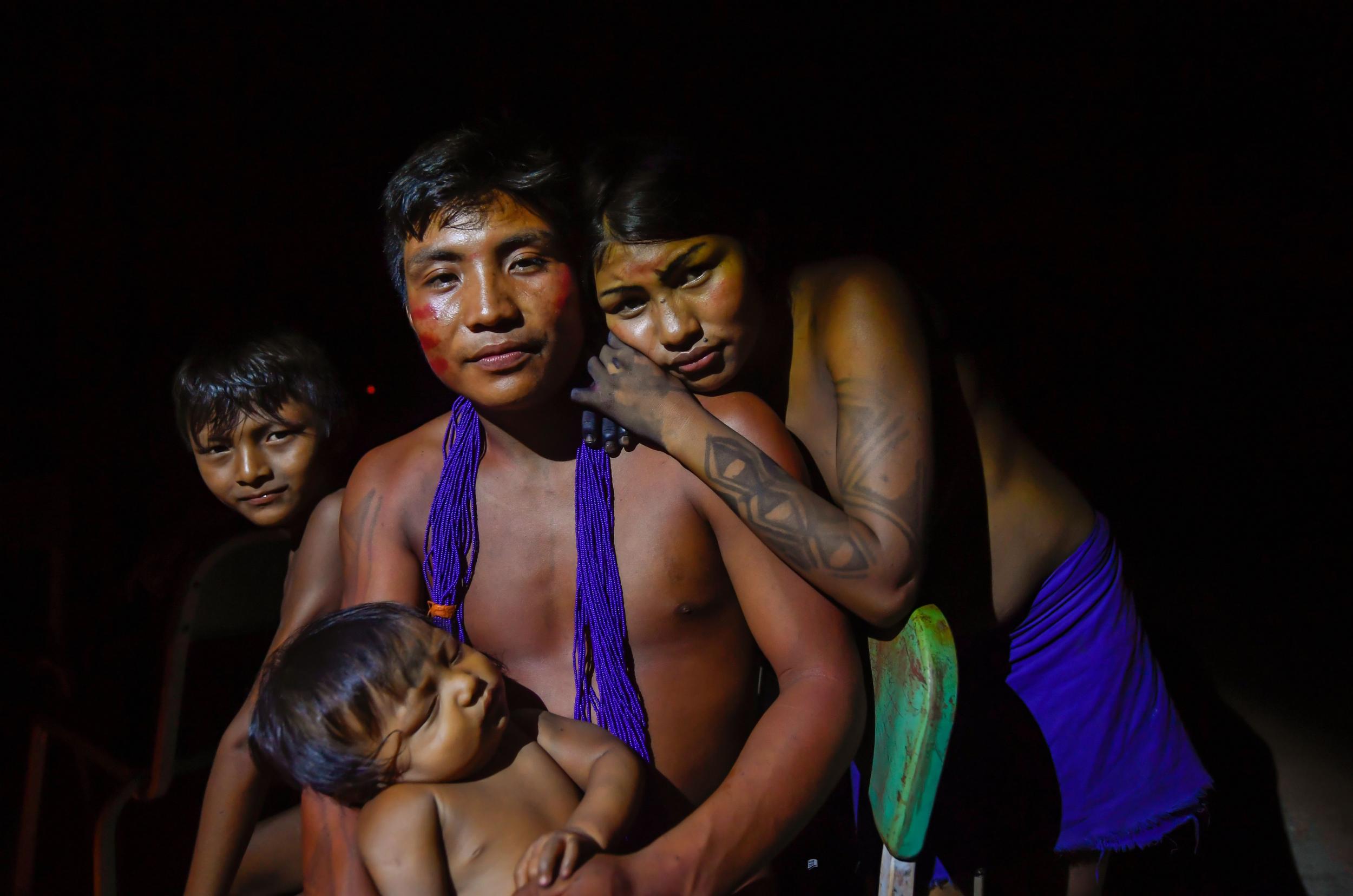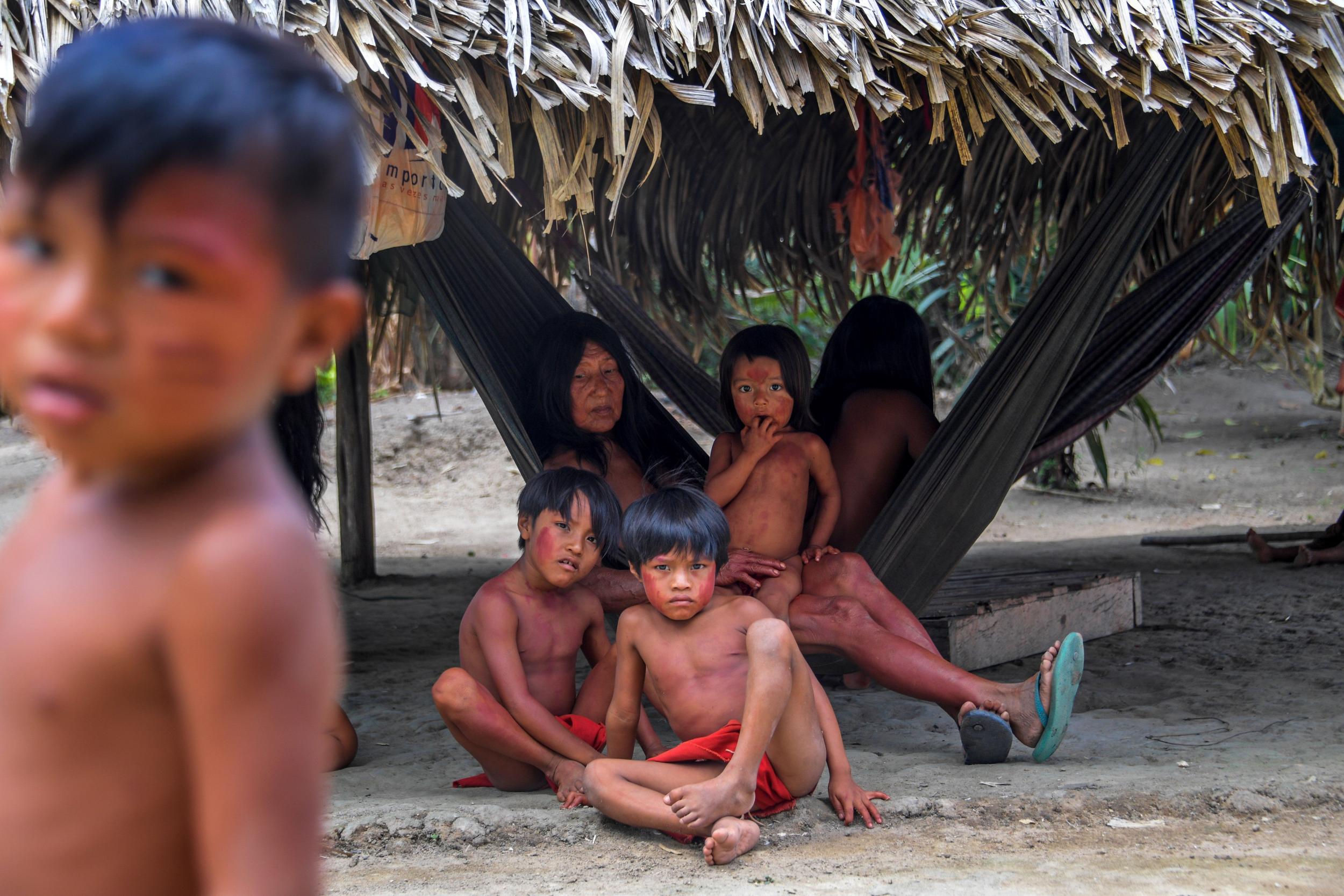Isolated Amazon tribe vows to fight international mining companies 'until the last of us is dead'
'When the companies come we’ll keep resisting', says tribesman Tapayona Waiapi

Your support helps us to tell the story
From reproductive rights to climate change to Big Tech, The Independent is on the ground when the story is developing. Whether it's investigating the financials of Elon Musk's pro-Trump PAC or producing our latest documentary, 'The A Word', which shines a light on the American women fighting for reproductive rights, we know how important it is to parse out the facts from the messaging.
At such a critical moment in US history, we need reporters on the ground. Your donation allows us to keep sending journalists to speak to both sides of the story.
The Independent is trusted by Americans across the entire political spectrum. And unlike many other quality news outlets, we choose not to lock Americans out of our reporting and analysis with paywalls. We believe quality journalism should be available to everyone, paid for by those who can afford it.
Your support makes all the difference.One of the world's most isolated tribes has promised to fight the mining companies which are threatening their home deep in the Amazon rainforest.
The Waiapi live in an indigenous reserve that is part of a much larger conservation zone called Renca.
Brazil’s government would like to open the area up to international mining companies who want access to the region’s deposits of gold and other metals.
But Tapayona Waiapi, a 36-year-old tribesman vowed his people would "keep fighting".
"When the companies come we’ll keep resisting," he told the Agence France Presse (AFP) news agency. "If the Brazilian government sends soldiers to kill people, we’ll keep resisting until the last of us is dead.”
Brazil's President Michael Temer ended mining restrictions in huge swathes of Renca in August, before backtracking the following month.
But Fiona Watson, campaigns director for tribal peoples’ rights organisation Survival, told The Independent the Waiapi are facing a “barrage of attempts to weaken and destroy” their constitutional rights.

“These attempts are spearheaded by President Temer himself, as he cuts deals with a large bloc in Congress which is dominated by the powerful agribusiness sector,” she said. “These are powerful landowners and business people determined to take over indigenous lands and steal tribal peoples' resources.”
There are fears the government wants to resurrect an incomplete road that would cut right through the jungle and link Brazil with Venezuela.
Were that to happen, Calibi Waiapi, a 57-year-old tribesman, told AFP: “There would be cars, trucks, violence, drugs, robberies. The culture would change. The young would want the cellphones, the clothes, the computers. If a lot of white men came, it would be the end.”
Ms Watson also warned that opening up indigenous territories to mining would pollute the Waiapi’s rivers where they fish and drink and contaminate their soils. The newly built roads would bring in waves of settlers, sparking social conflict and health problems, she added.
It is believed there are still group of Indians living near the Waiapi that have yet to contact the outside world. Ms Watson said they would be devastated by the introduction of industry.
Despite the uncertainty, the Waiapi have proved extremely resilient since they were first contacted in 1973, Ms Watson said, adding that their population has grown from 150 to more than 1,200 today.
“They have set up their own organizations, expelled the gold miners working illegally on their land, have their own health agents treating diseases like malaria which is a big problem, and their own teachers,” she said.
“The Waiapi’s vital role in conserving the Amazon and its rich biodiversity ultimately benefits all Brazilians and humanity.”
Join our commenting forum
Join thought-provoking conversations, follow other Independent readers and see their replies
Comments